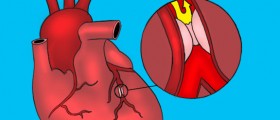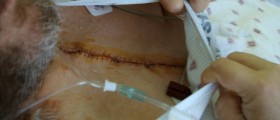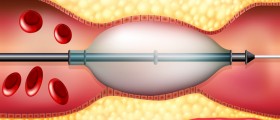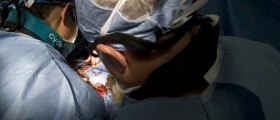
Coronary Bypass Surgery
Coronary bypass surgery is a type of surgical procedure in which the blood flow in coronary arteries is restored. Namely, in case that the blood flow in any of the coronary arteries has stopped the heart is not supplied with proper amount of oxygen and nutrients which eventually results in necrosis and complete loss of function. In this procedure by diverting the blood flow the adequate blood supply is restored and the heart keeps on functioning as it used to do. To accomplish restoration of the blood flow healthy blood vessels are taken form patient's legs and they are attached to the affected arteries above the level of blockage. This type of surgery is only one surgical approach in treating certain heart conditions.
This procedure can be performed either as a prevention of heart attack and sometimes it can be also done in patients who have already suffered from this life-threatening disease and has not responded to medicamentous or other treatment.
Coronary bypass surgery is an excellent choice for all the patients who are suffering from chest pain due to narrowing of the heart arteries, those who have more than one coronary artery affected by atherosclerosis, patients whose heart arteries are completely blocked and finally for those patients who have already undergone angioplasty and the procedure has not been successful.
People who have to undergo coronary bypass surgery need to maintain healthy lifestyles and to prevent and stop further process of atherosclerosis. This is why majority of patients after the surgical procedure need to change their dietary regimes, keep on with certain medications and help their hearts to stay healthy.
Risks and Complications of Coronary Bypass Surgery
The procedure is done on open-heart. This is why it carries certain risks. The most common complications are bleeding and arrhythmias. Furthermore, patients can develop blood clots and suffer from heart attack after the operation. Kidney failure is one more complication that has been reported. Since patients are covered with antibiotics infections occur rarely. In small number of patients transient memory loss and problems with thinking may happen. And finally, predisposed patients can develop a stroke.
General health and previous state of the heart determines whether any of the previously mentioned complications will develop. The risk of complications increases if the procedure is performed as an emergency or if a patient is already suffering from some other medical conditions such as kidney disease, emphysema, and diabetes mellitus and so on.
The results of the surgery are excellent. The patient is free of symptoms for at least 10 to 15 years. This can be successfully obtained, if the operated person continues with the healthy life, gets rid of bad habits such as smoking and keeps any accompanying disease under control.

















Your thoughts on this
Loading...